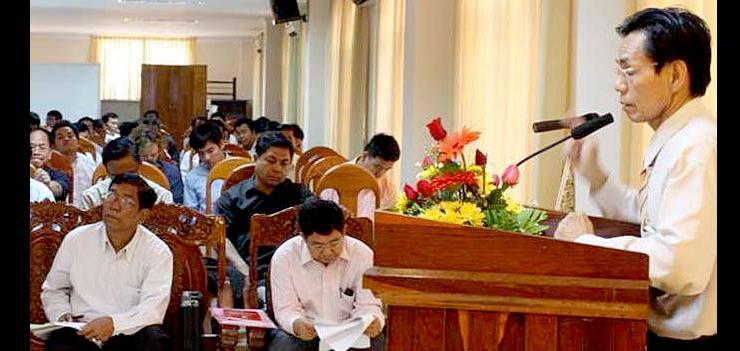Following three years of measurable impact from EWMI gender-based violence prosecution programs, this year the EWMI’s Program on Rights and Justice (PRAJ) expanded the work to address the growing global problem of drug resistance caused by counterfeit and substandard pharmaceuticals. Through a program supported by the USAID/Cambodia Health Office, in September 2012 PRAJ began to develop expanded prosecution training and case tracking to support the joint work of the Ministries of Health and Justice in investigating and prosecuting these crimes. The launch of the EWMI activities marks the first systematic effort to train justice and health officials side-by-side on the investigation and prosecution of counterfeit and substandard drugs and illegal drug services.
Malaria and tuberculosis alone kill more than 2 million people a year, while millions more are infected but do not die because they take malaria and TB drugs. Worldwide, these drugs are failing at alarming rates due to drug resistance, with resistance to the only known successful anti-malaria drug, artemisinin, traced to the Cambodian province of Pailin. The sale of counterfeit and substandard drugs and the operation of illegal pharmacies are regularly identified as primary causes of drug resistance. Counterfeit drugs are a 45 billion dollar a year business, and while laws are in place to combat these illegal drugs and services, global health efforts have focused mainly on defensive efforts to stop their spread: free mosquito nets, free drugs, and direct observation treatment. Limited attention focuses on offensive measures: investigating, prosecuting, and tracking those responsible for their production and sale.
EWMI has based its new prosecution training and tracking program on the successes of two previous programs in Cambodia. The EWMI trafficking in persons (TIP) prosecution training and case tracking program, begun in 2009, led to a 300% increase in convictions – a rate sustained over three years. In 2011, EWMI expanded this program beyond TIP cases to include all GBV prosecutions (nearly 20% of criminal cases), and in just one year the overall clearance rate for these cases, and the number of convictions, doubled. Taken together, these activities have trained several hundred officials from the Ministries of Justice and Women’s Affairs, while closely tracking thousands of court cases. The 2011 GBV program alone covered every Cambodian province, and trained over 500 officials.
Drawing on these three years of documented success, in 2012 EWMI and USAID turned to a third area of criminal conduct facing impunity – illegal pharmaceuticals – and expect to see similar measurable improvements in prosecutions over the coming years.

